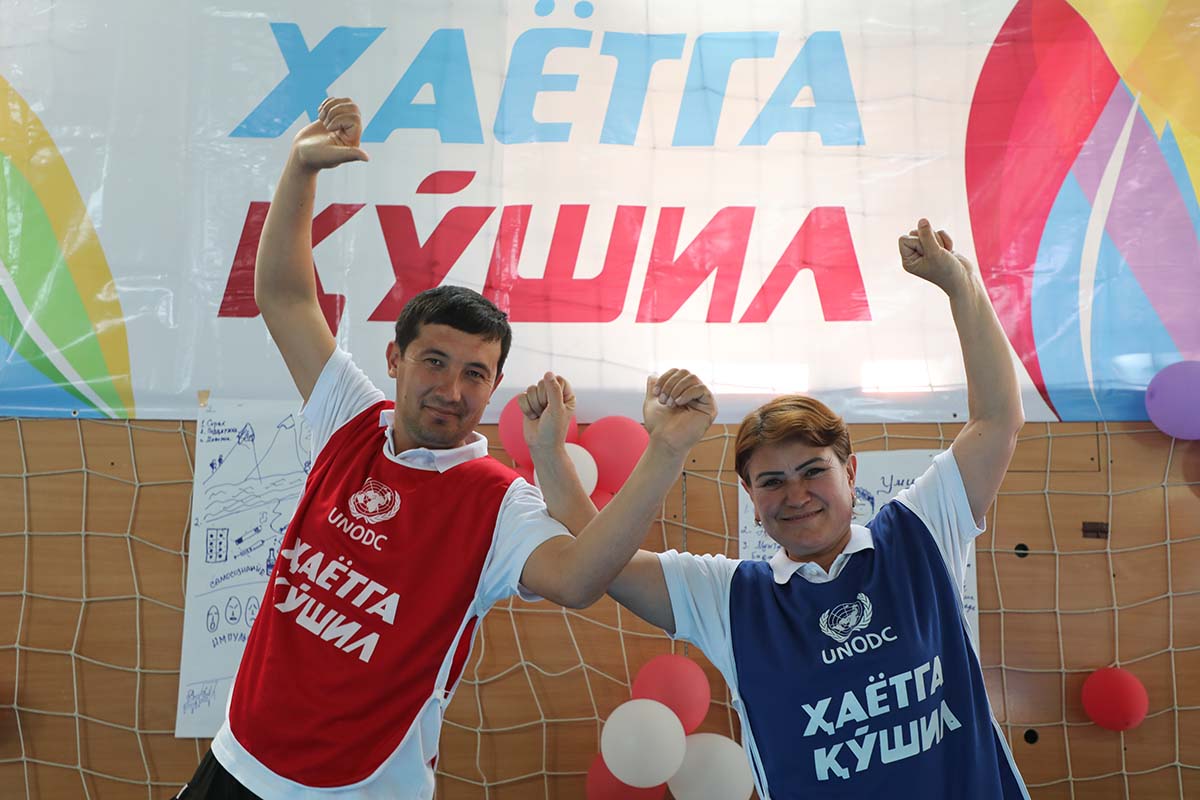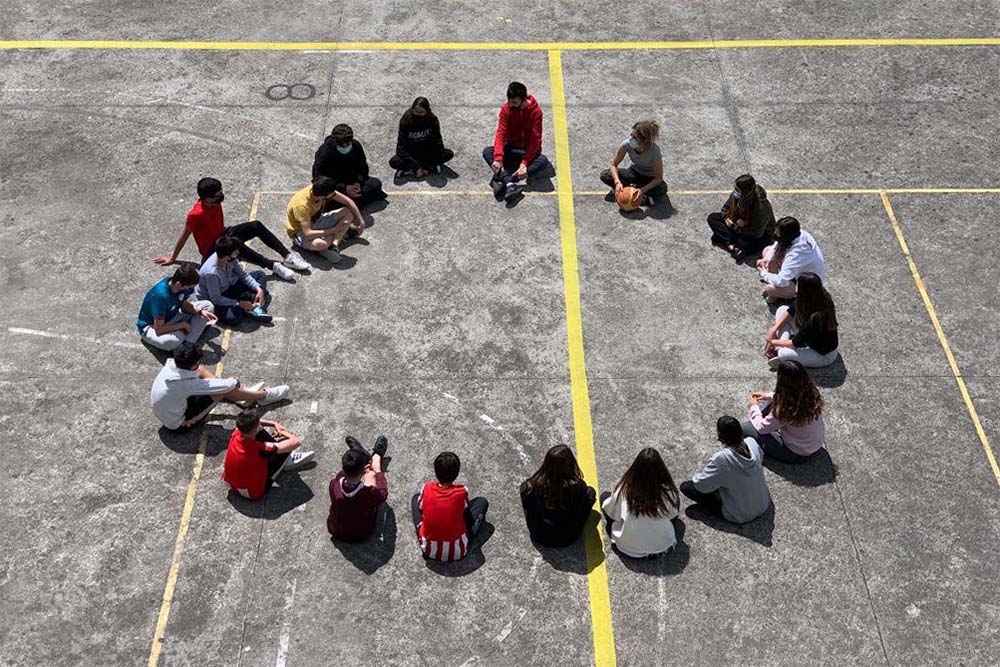Preventing violent extremism through sport: UNODC launches new tools in Central Asia
02 July 2021 – Many parts of the world, including countries in Central Asia, have faced a surge in extremist ideology and radicalization in recent years, particularly among young people, posing a direct threat to peace, stability and development. Given the youthful population across the region and the vulnerability of young people to recruitment by violent extremist groups, it is essential to cater to their needs and put in place preventive actions that will address the root causes of violent extremism.
To counter these challenges, Government and other experts in many countries have developed national policies to address the root causes of violent extremism and devise effective responses, alongside the Joint Plan for Action in Central Asia, which calls for youth in initiatives for education, sustainable human development and social justice and the promotion of social inclusion in order to reduce their marginalization and vulnerability to violent extremism and recruitment by terrorists.
At UNODC, through its Youth Crime Prevention through Sport initiative, the organization supports Member States in their efforts against violent extremism by developing technical guidance materials and building the capacity of policymakers and practitioners on the effective use of sport to address key drivers of violent extremism. This support is guided by international frameworks such as the Secretary-General’s Plan of Action to Prevent Violent Extremism (PVE) and various resolutions which emphasize the key role that young people play in crime prevention and peacebuilding efforts.
Building on the tools recently developed by UNODC on the topic – a Technical Guide, an e-learning course, and a Practical Guide for practitioners on Preventing Violent Extremism through Sport – UNODC is organizing a series of workshops in Central Asian countries aiming to underline the importance of prevention by addressing push and pull factors, promoting holistic and multisectoral approaches to prevention and discussing the role of sport as a tool in this context.
Sport has long been considered a valuable tool for fostering important human values and can be used as a mechanism to promote, among others, respect, teamwork, a sense of belonging and community, tolerance, diversity, and inclusion. In the context of PVE, sport can serve as an effective platform to address the ideologies and root causes of violent extremism by strategically providing a tool to create ideal conditions for learning, social participation and the meaningful and positive engagement of youth within communities. It can therefore be effective in preventing radicalization processes and recruitment of young people by extremist groups. Interwoven through the guidance materials are five areas of intervention considered key to predict youth resilience and empowerment through sport: safe spaces, social inclusion, empowerment, education and resilience.

The first such workshop was held in Tajikistan on 30 June in a hybrid format, against the backdrop of a recently adopted National Strategy on Countering Extremism and Terrorism (2021–2025). This new strategy replaces the previous one and underlines several prevention priorities among adolescents and youth, explicitly mentioning the role of sport in achieving attitudinal and behavioural change.

A second workshop, hosted by UNODC Kyrgyzstan, was held on 1 July and brought together 30 participants who also presented the National Programme on Countering Extremism and Terrorism (2017-2022)and other national policy developments before completing the UNODC e-course.

Additional workshops on preventing violent extremism through sport are planned to take place in Lebanon, Uganda and Uzbekistan in the coming months. UNODC will continue to support Member States in raising up to the challenge of building youth resilience to violent extremism by providing opportunities for social development and active civic engagement.
Additional information:
Leveraging Sport to Prevent Violent Extremism
Youth Crime Prevention through Sport initiative
UNODC Technical Guide on Preventing Violent Extremism through Sport
UNODC Practical Guide on Preventing Violent Extremism through Sport


